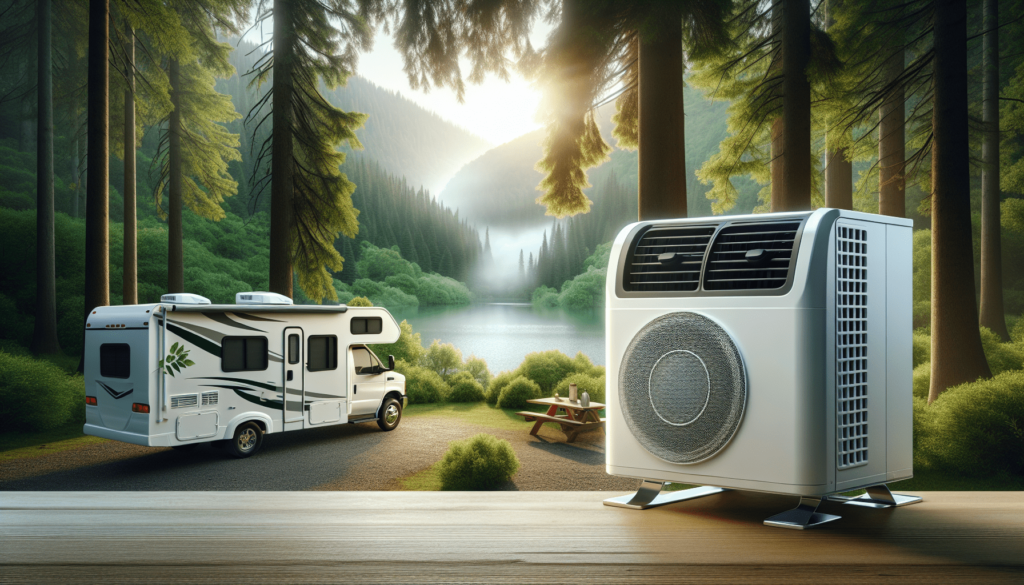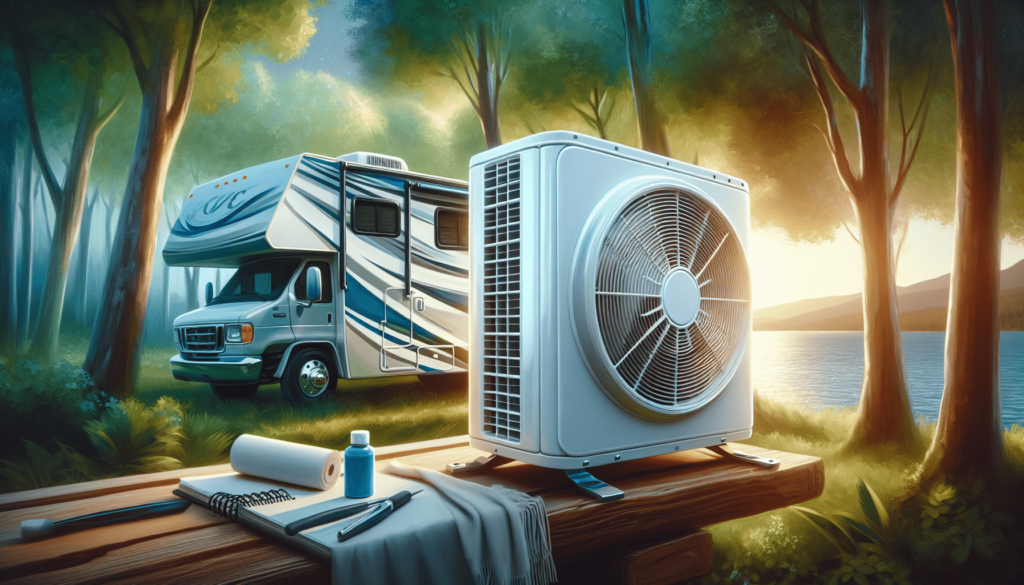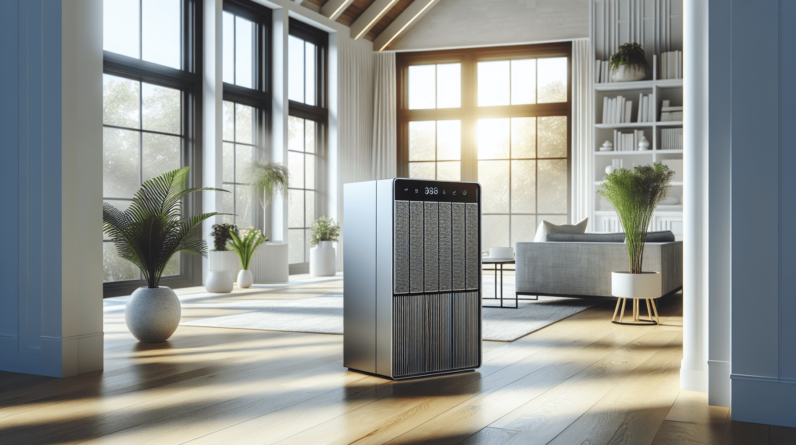
Have you ever found yourself sweating in your camper while trying to enjoy the beauty of nature? For many, the summer heat can turn a relaxing getaway into an uncomfortable experience. One of the best solutions to this problem lies in finding the right air conditioner for your RV camper. Let’s explore what you need to know!

Understanding Your RV Air Conditioning Needs
Before you make a purchase, it’s important to understand your specific needs. Different camping situations and RV types can require different air conditioning solutions. You might want to consider the size of your camper, the climate you’ll be camping in, and how often you’ll be using air conditioning.
The Size of Your RV Camper Matters
The size of your RV directly impacts the type and size of air conditioner you need. A small camper may only require a compact, portable unit, while a larger motorhome might need a more robust, roof-mounted unit.
| RV Size | Recommended AC Type |
|---|---|
| Under 20 feet | Portable AC or window unit |
| 20 to 30 feet | Rooftop AC (13,500 BTU) |
| Over 30 feet | Dual rooftop AC (15,000 BTU each) |
Climate Considerations
Depending on where you’ll be camping, your air conditioner needs may vary. Hot and humid climates will demand more powerful units, while dry, cooler regions might not require as much cooling power.
Types of Air Conditioners for RV Campers
When deciding on an air conditioner for your RV camper, you’ll find several types available. Each type offers its own set of benefits, so it’s worth diving into these details.
Rooftop Air Conditioners
Rooftop air conditioners are the most popular choice for RVs. These units are mounted on the roof and are designed to cool down larger spaces effectively.
-
Pros:
- Efficient cooling for larger areas.
- Does not take up precious interior space.
- Generally quiet operation.
-
Cons:
- Higher installation costs.
- Can be challenging to service or replace.
Portable Air Conditioners
Portable air conditioners are versatile, as they can be moved and positioned wherever cool air is needed.
-
Pros:
- Ease of use and mobility.
- Ideal for smaller campers.
- No need for permanent installation.
-
Cons:
- Limited cooling power for larger RVs.
- Requires venting, which can be tricky in an RV.
Window Units
If you’re camping in an RV with large windows, a window AC unit can be a cost-effective option.
-
Pros:
- Generally less expensive than rooftop units.
- Easy to install.
-
Cons:
- Not as powerful as rooftop units.
- Can obstruct the view.
Cooling Power: Understanding BTUs
When shopping for an air conditioner, you’ll often see BTU ratings. BTU stands for British Thermal Unit and measures how much heat an air conditioner can remove from the air in an hour.
Choosing the Right BTU Rating
Selecting the correct BTU for your AC unit is crucial for efficient cooling. Installing an AC unit that is too small will struggle to cool the space, while an oversized unit can lead to constant on-and-off cycles, which is not energy-efficient.
- BTU Requirements Based on RV Size:
| RV Size | Recommended BTUs |
|---|---|
| Under 20 feet | 5,000 – 7,000 BTUs |
| 20 to 30 feet | 10,000 – 13,500 BTUs |
| Over 30 feet | 14,000 – 15,000 BTUs |
Additional Factors Affecting BTU Needs
Several factors can affect the BTU requirements of your air conditioner. If your RV has a lot of windows that let in sunlight, or if you’re camping in a particularly hot area, you might need to consider higher BTU ratings. Additionally, the number of people using the RV can also influence cooling needs.
Installation: DIY or Hire a Professional?
When it comes to installing an air conditioning unit in your RV, you’ll need to consider whether you’d like to tackle the project yourself or hire a professional.
DIY Installation
If you have some handyman skills, installing an air conditioner can be a fun project. Many rooftop units come with comprehensive instructions.
- Steps for DIY Installation:
- Gather your tools.
- Ensure the roof is strong enough to support the unit.
- Follow the manufacturer’s instructions for installation.
- Seal everything properly to avoid leaks.
Professional Installation
If you’re unsure about your skills or want to ensure a perfect installation, hiring a professional can save you time and stress.
- Benefits of Professional Installation:
- Ensures correct installation.
- May include warranties and guarantees.
- Can provide advice on choosing the right unit.

Maintenance Tips for Your RV Air Conditioner
Maintaining your RV air conditioner is key to ensuring it runs efficiently and lasts for many seasons.
Regular Cleaning
Regular air filter cleaning is essential for optimal airflow. A dirty filter can reduce efficiency and lead to a breakdown.
- Steps to Clean the Filter:
- Turn off the AC and unplug it.
- Remove the cover and filter.
- Wash the filter with soapy water, rinse, and let it dry before re-installing.
Check for Leaks
Check for any signs of leaks around the unit. If you notice condensation dripping from your air conditioner, you might have a blockage or need to clean the drain tubes.
Monitor Performance
Pay attention to how well your air conditioner is performing. If you notice a significant drop in cooling power, it might be time to call a technician or replace the unit.
Energy Efficiency: Keep It Affordable
Running an air conditioner can significantly increase your energy consumption, especially in an RV where power sources may be limited.
Look for Energy-Efficient Models
When shopping for an AC for your RV, look for units labeled with the Energy Star rating. These models consume less energy while providing effective cooling.
Use Thermostat Settings Wisely
Utilize your thermostat’s programming options to maintain consistent cooling without overworking the unit.
- Set the temperature four or five degrees higher when you’re not inside to save energy.
- Using ceiling fans in conjunction with your air conditioning can help distribute cool air more evenly.
Budgeting for Your RV Air Conditioner
Once you’ve decided on the type of air conditioner you want, it’s important to budget accordingly.
Purchase Price
The price of your air conditioning unit will vary based on its type, brand, and BTU rating. Expect to budget anywhere from a few hundred dollars for a portable unit to a couple thousand for a high-quality rooftop model.
Installation Costs
If you’re not going the DIY route, don’t forget to account for installation costs. Labor can vary significantly depending on where you’re located.
Running Costs
Be aware of the ongoing costs associated with running your unit, including electricity or fuel costs if you’re using a generator.
Troubleshooting Common Air Conditioning Issues
Like any appliance, RV air conditioners can run into issues from time to time. Familiarizing yourself with common problems and solutions can save you a lot of stress.
Unit Doesn’t Turn On
First, check to ensure that the unit is plugged in and that your RV’s circuit breaker hasn’t tripped.
Not Enough Cool Air
If your unit is running but not sufficiently cooling, check the air filters and clean them. Blocked filters can limit airflow.
Unpleasant Odors
If you notice any odors coming from your air conditioner, it might be a sign of mold or mildew buildup. Cleaning the filter and the AC unit itself can often resolve this issue.
Future Trends in RV Air Conditioning
The RV industry is always evolving, and so are air conditioning technologies. A few trends to keep an eye on include:
Smart Thermostats
Just like in your home, smart thermostats for RVs are becoming more popular, allowing you to control your AC unit from your smartphone or tablet.
Solar-Powered Options
With the push toward green energy, solar-powered air conditioning units are starting to hit the market, making it easier to run your AC without draining your RV battery or relying on fuel.
Advanced Cooling Technologies
New cooling technologies, including evaporative coolers and heat pump systems, offer more ways to keep your RV comfortable while being energy-efficient.
Wrapping Up: Cool Comfort Awaits
Finding the right air conditioner for your RV camper can transform your camping experience from sweaty and uncomfortable to cool and refreshing. Consider your RV’s size, the climate where you’ll be camping, and the type of AC unit that will best suit your needs.
As you shop, take into account BTU ratings, installation options, and ongoing maintenance. With the correct information and resources, you can enjoy your outdoor adventures without breaking a sweat!
So, are you ready to take the plunge and invest in an air conditioning solution that will significantly enhance your camping experience? Happy travels and stay cool!








